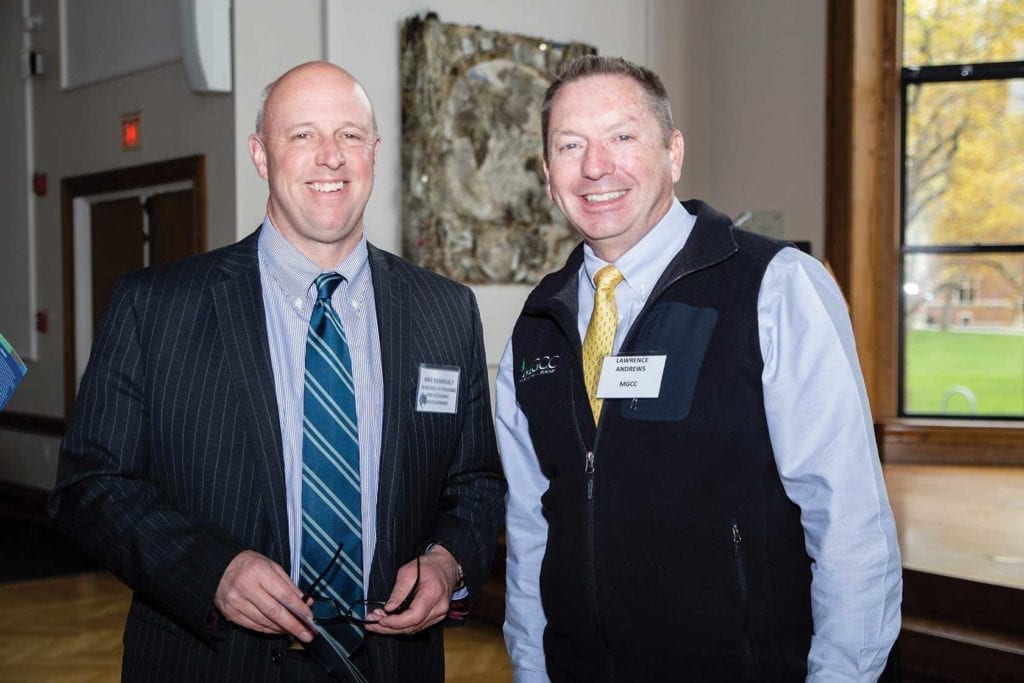Assistance for small businesses
Massachusetts Growth Capital specializes loans to minority business enterprises

After the Columbia Gas company’s over-pressurized gas lines caused explosions last September damaging hundreds of homes in the Merrimack Valley, more than 200 businesses suffered losses.
While individual businesses filed claims and struggled with Columbia Gas over dollar amounts, Massachusetts Growth Capital Corporation saw a need and sprang to action, convening 20 banks to make loans to struggling small businesses.
“The banks agreed to make loans with no interest,” said Lawrence Andrews, president and CEO of the quasi-governmental agency, which was originally chartered in 1975 by the Legislature to provide business assistance. In 2010, during the administration of former Gov. Deval Patrick, the agency was re-tooled to focus on small business loans to minority- and women-owned businesses, veteran-owned businesses and businesses in economically disadvantaged areas.
Today, MGCC provides loans and small business assistance to the types of business owners who often fall through the cracks of the traditional lending world. The agency is able to help businesses by taking a different approach than that favored by banks.
“We lend based on cash flow,” Andrews said. “Banks look at collateral and cash flow. If a business has the cash flow to meet their expenses and repay the loan, we’ll make the loan.”
MGCC makes loans between $5,000 and $1 million to firms throughout the commonwealth, ranging from mom-and-pop operations to fast-growing enterprises. Since its inception in 2010, the agency has provided $122 million in loans. Locally, businesses such as the Windwalker Group security firm, Outkast Electrical contractors and Dream Collaborative, an architecture and real estate development firm, have turned to MGCC for loans and assistance.
The agency received startup capital at its inception from the Legislature and makes loans from that original pool of funds. Typically, MGCC works through banks, putting up a portion of the cash that banks then extend to the borrower.
“Most companies already have a relationship with a bank. We give some comfort to a bank by helping make a deal work,” Andrews said.
While Andrews has worked as a senior vice president in New England banks, gaining experience working with small businesses, at MGCC he works more closely with companies that face the hurdles unique to businesses helmed by people of color, women and immigrants.
“There are different experiences for different people when they go to get capital,” he said. “We are sensitized to that. We inform our borrowers what they need to get a loan, but we’re sensitive to what they’re up against.”
Multicultural reach
To reach into communities often overlooked by traditional lenders, MGCC often uses local agencies. In Boston’s Somali Community, the agency works through African Community Economic Development of New England to reach entrepreneurs who might not otherwise know where to turn when banks refuse to provide capital.
“It helps the businesses when they have someone who speaks their language,” Andrews said. “It helps us to reach people who aren’t going to turn to the MGCC website. There are many businesses that don’t know what resources are available to them.”
In Worcester, MGCC relies on the South East Asian Coalition to reach out to small business owners who speak 14 different languages.
“They all need small business assistance,” Andrews said.
Beyond loans
In addition to loans, MGCC offers small business technical assistance grants. Last year, the agency received $2 million from the state to provide such assistance, pairing businesses with specialists who can help them with strategies to grow their business, such as applying for loans, acquiring new equipment, creating marketing materials or developing a business plan.
Business plans are an essential ingredient for obtaining loans, Andrews notes.
“A business plan really determines where a business will be in the next two years or next five years,” he said. “It shows they’re planning for the future. As a lender, you’re going to look for that kind of planning up front.”
While it’s not advised, businesses often launch without a plan.
“It’s the entrepreneurial spirit,” Andrews said. “Sometimes people are starting a business just to provide for their family. It’s often the only way people know they can get a paycheck. Oftentimes they don’t have a plan. They just know something about the business they’re getting into. But if they’re looking for investors or other people’s money, they have to have some way of communicating what their vision is.”
Bookkeeping can also be a hurdle that prevents entrepreneurs from obtaining loans, even from nontraditional lenders like MGCC.
“The biggest barriers to obtaining a loan are oftentimes the lack of reporting and controls,” he said. “Banks and financial institutions are looking for your ability to repay a loan. Oftentimes, businesses don’t accurately reflect what they’re doing.”
Andrews notes that MGCC itself has to engage in planning.
“As a quasi-state agency, I have to have a business plan,” he said. “What do we hope to achieve? We have to have goals and strategies that we can look at and say, ‘What did we accomplish?’ For anyone to be successful, they have to put some thought into a plan.”







